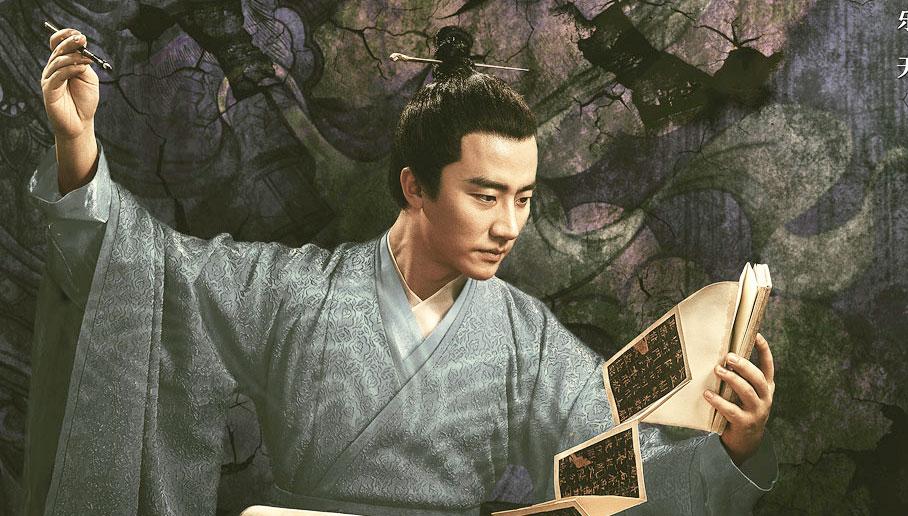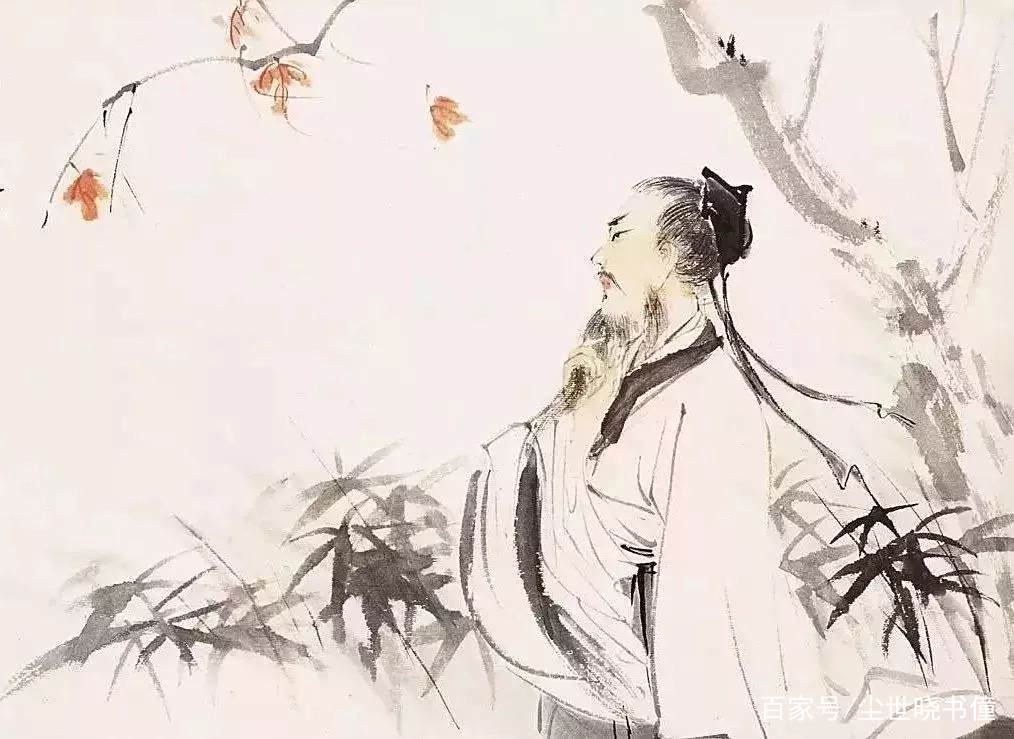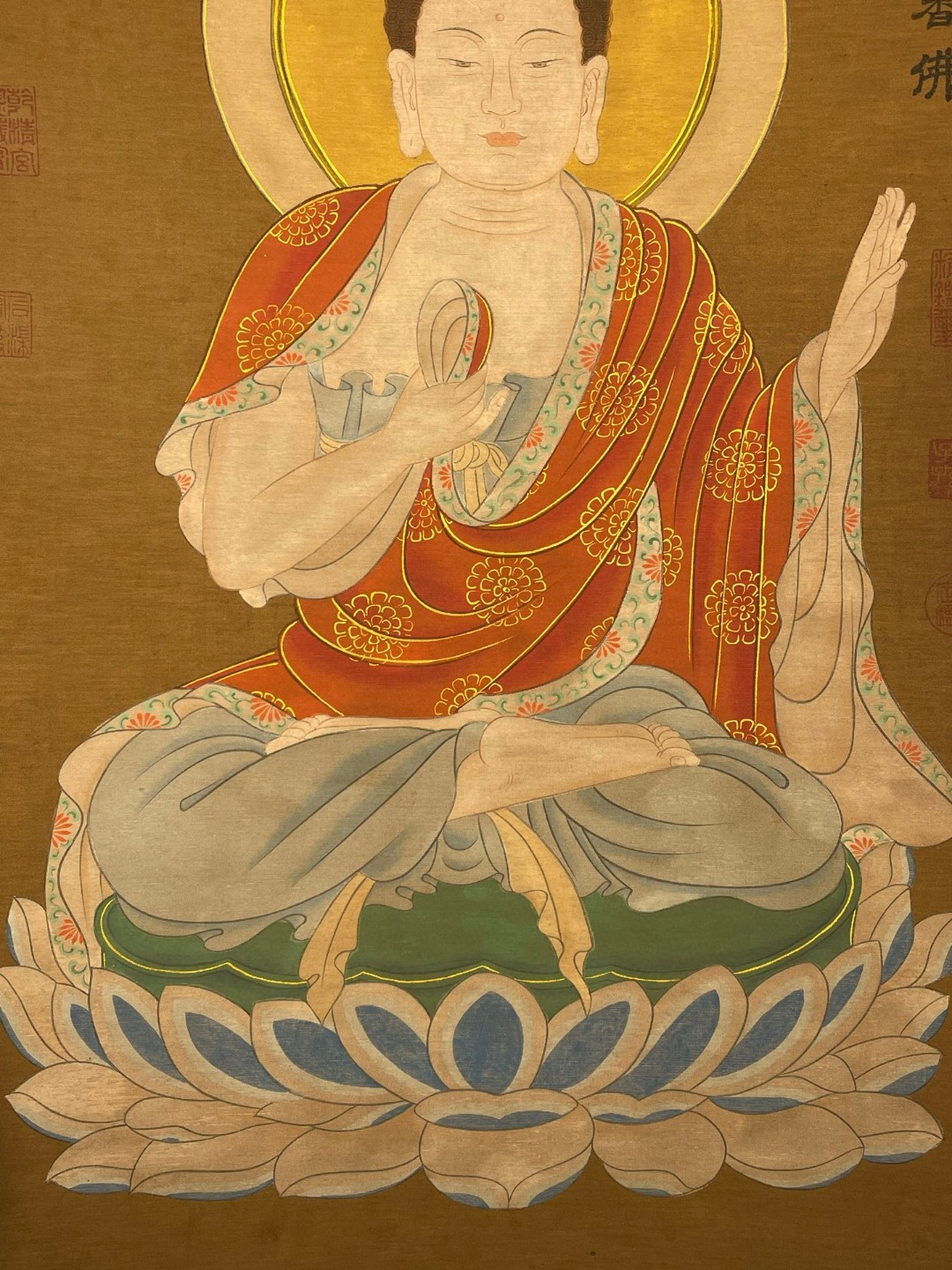Su Shi, also known as Su Dongpo Jushi or Su Dongpo, was a literary leader in the mid Northern Song Dynasty. He achieved great success in poetry, calligraphy, painting, and other fields, and was a representative figure of the bold and unrestrained movement. He was one of the eight great masters of the Tang and Song dynasties. Let’s learn about Su Shi together with the editor of History Encyclopedia.

Su Dongpo is a rich mine that has been accessible and inexhaustible for thousands of years.
The research monographs on Su Dongpo are overwhelming and dazzling.
However, when it comes to the biography of Dongpo, there are two versions that cannot be avoided: Lin Yutang’s “Biography of Su Dongpo” and Li Yibing’s “New Biography of Su Dongpo”.

The former tends to be emotional, while the latter focuses on research. By combining the two, we can read a vivid and charismatic Su Dongpo.
1. The breadth of travel
Life is like a flying swan stepping on snow and mud, as we know everywhere. “Describing Dongpo’s life with Dongpo’s poetry is the most appropriate way.
According to the biography, Su Dongpo lived, served, and resided in exile. He traveled as an official for over forty years, covering most of the territory of the Northern Song Dynasty: from his hometown Meizhou in Sichuan to Fengxiang, Dengzhou, Mizhou, and Dingzhou in the north, Hangzhou, Huzhou, and Yangzhou in the east, Huizhou and Danzhou in the south, and of course, Kaifeng and Huangzhou in the Central Plains.
Looking at his life journey, it involves more than ten provinces and cities such as Sichuan, Henan, Shaanxi, Hubei, Zhejiang, Jiangsu, Shandong, Hebei, Guangdong, Hainan, etc. In the ancient agricultural society where boats, carts, and horses were the means of transportation, it is truly unimaginable.
This kind of “slow life” on the road, with hardships, hardships, and a true life experience of “traveling thousands of miles”, may be the source of poetic sentiment and poetic inspiration.
The sun used to slow down/Cars, horses, and mail all slow down/Life is only enough to love one person
In today’s society, material wealth is extremely abundant, technology, transportation, and communication are increasingly developed, and the pace of life is getting faster and faster. Everyone is like a component on an assembly line, spinning continuously like a gyroscope.
Does the convenience of modern life necessarily come at the cost of the loss of poetry?
2. The depth of entry into the world
Lin Yutang commented:
Su Dongpo was a resilient and optimistic person, a compassionate moralist, a good friend of the common people, a prose writer, a painter of the new school, a great calligrapher, a brewer, an engineer, an opponent of Taoism, a practitioner of yoga, a Buddhist, a scholar, an emperor’s secretary, a drinker, a compassionate judge, a person who persisted in his own political views, a wanderer under the moon, a poet, and a humorous and joking person by nature.
That’s not enough,
Compared to other Chinese poets, Su Dongpo’s personality traits possess the richness, breadth, and humor of a versatile genius, with extraordinary intelligence and an innocent childlike heart, as described by Jesus, combining the wisdom of a snake with the gentleness of a dove. Undeniably, this rare combination is rare in the world.
This evaluation is appropriate.
When it comes to Su Dongpo, Li Bai is generally compared in terms of talent.
Li Bai is certainly great, but looking at his life, he tends to lean towards utopian romanticism, while Dongpo is much more down-to-earth.
In his official position, he was busy with promoting water conservancy, treating water disasters, building medical clinics, administering pesticides, and providing disaster relief to the people… He was involved in all aspects of engineering, agriculture, and medicine, demonstrating his administrative abilities beyond poetry and prose. “He had a very sharp and astute talent, which was unmatched by ordinary capable officials” (Li Yibing’s words).
Yu Individual can be called a master of life. He plays zither, chess, calligraphy and painting, meditates and chants Buddhism, picks herbs and extracts pills, ploughs fields, brews wine and cooks… All of them have unique and profound insights, which are impressive, leaving behind both Sugong Dike and delicious Dongpo Braised Pork for future generations.
Su Dongpo is a true character, not a false Daoist. He is filled with an unwavering passion for life, regardless of good or bad times.
There is a saying nowadays: You cannot control the length of life, but you can increase the thickness of life. Nearly a thousand years ago, Su Dongpo was a model.
Su Dongpo was not a perfect person, of course, he had his limitations, but as some critics have said, he seemed to have exhausted the possibilities of life. His panoramic wisdom in life highlights how monotonous and impoverished we are today.
3. The resilience of life
Throughout his life, Su Dongpo lived high in temples and traveled far and wide in rivers and lakes. He was demoted several times to the wilderness, experiencing ups and downs, a tumultuous fate, and mixed joys and sorrows.
Few people’s lives are as complex as his, embodying the absolute realms of heaven and hell in one person. “(Li Yibing’s words)
Except for twenty years in his hometown of Meizhou and over four years in Huangzhou, Su Dongpo hardly ever lived in one place for three or two consecutive years in his life.
The most extreme situation is that after several months of long-distance travel and just a few days of duty in one place, one must hastily depart upon receiving orders, such as Dengzhou. Throughout his life, he is like a flying cloud in the wind, unable to control himself, living in a state of wandering and uncertainty.
However, in the seemingly unbearable life of ordinary people, he relied on his open-minded and optimistic nature to face sadness and hardship, enjoy himself in hardship, capture poetic moments everywhere, and use his pen and ink to turn them into eternity, leaving an inexhaustible spiritual wealth for future generations.
Many of Su Dongpo’s most touching poems and essays were written in exile.
Although I am afraid of slander and occasional small complaints, I have no resentment towards the heavens and others. On the contrary, I show an extremely broad vision and broad mind. “I can accompany the Jade Emperor above, and I can accompany the beggars in the Beitian Court below. There is no bad person in the world before my eyes.
This way of dealing with the world has made his individual life energy so strong and his life tension so tenacious, ‘enduring a life of smoke and rain’ and ‘neither wind nor rain nor sunshine’.
4. The Beauty of Philosophy
A true master is good at using simple words to reveal profound truths, rather than the opposite.
Su Dongpo is such a master.
The beauty of his poetry, prose, and literature is self-evident, and the beauty of reasoning and speculation contained in it often makes people feel delighted and even exclaim in admiration. With just a few words, one can feel a sense of “having something in the heart but not in the pen”.
For example, when we educate children to read more books, read good books, and strive to enhance their inner beauty, will we naturally use the phrase ‘having a poetic and scholarly aura in the belly makes one feel beautiful’?
When we comfort others to see the impermanence of the world and accept the regrets of life, do we blurt out, ‘People have joys and sorrows, separations and reunions, and the moon has ups and downs?’?
When we look back on our youth but do not want to lament the passing of time in vain, will we urge ourselves to ‘Who says that life is endless, and the flowing water in front of our door can still flow westward’?
When we face misunderstandings, misinterpretations, and even sudden storms, do we silently recite in our hearts’ sudden arrival without surprise, unjustified addition without anger ‘?
When we are trapped in the mystery of the authorities, shrouded in clouds and mist, and unable to find a solution, do we exclaim, ‘I don’t know the true face of Mount Lu, only because I am in this mountain’?
When we break free from the confines of our own psychological shackles, do we also feel a sense of ‘the heart is like a fish hooked, suddenly liberated’?
This kind of philosophical beauty can be found everywhere in his works that have been passed down to later generations. Frankly speaking, what those who can speak cannot speak seems to be explained only by geniuses.
5. The Happiness of Red Sleeves
When reading the biography of Su Dongpo, I often wonder what supports Su Dongpo’s view of difficulties as nothing, even though his life was full of misfortunes, he was not pessimistic or sinking, and could withstand what ordinary people could not do?
Upon seeing the analysis of a critic, I find it quite reasonable: firstly, there is an innate sense of compassion towards the heavens and others; The second is the turn of suffering towards nature and aesthetics; The third is the nourishment of the passionate and long-lasting love of the beautiful woman.
The first two are internal factors that play a dominant role; The latter is an external factor and also essential.
Goethe, who once wrote “The Sorrows of Young Werther,” said: The eternal woman guides us forward.
The three women who accompanied Su Dongpo throughout his life, Wang Fu, Wang Runzhi, and Wang Chaoyun, were either tolerant, gentle, and hardworking, or intelligent and understanding. Lin Yutang and Li Yibing gave them high praise.
No matter what situation Dongpo was in, they always added fragrance to his sleeves, providing him with silent support, especially spiritual comfort. ‘This place of peace is my hometown’.
Imagine that without their understanding and companionship, the thickness of Su Dongpo’s life might have diminished by a few points?
In a certain sense, they partially contributed to the success of Su Dongpo, who used words to make them eternal in literary history. This is the fortune of Dongpo and also the fortune of Hongxiu.
A person who loves life must be someone who is rich in inner emotions and delicate.
Although Su Dongpo is revered as a leading figure in the “bold and unrestrained” movement, he also has many touching sketches, such as the well-known tribute to Wang Fu in later generations, “Jiangchengzi: Ten Years of Life and Death in Two Vast Boundaries,” a eulogy written for Wang Runzhi, and “Xijiang Moon: Jade Bone in the Melancholy Mist,” and so on.
Without a bone penetrating experience and genuine emotions, it would be difficult to have such profound and unforgettable words.
Lin Yutang said that human life is also the life of the soul, and Su Dongpo’s story is basically a story of the soul.
Thank you to Lin Yutang and Li Yibing for reproducing a flesh and blood Su Dongpo for us to admire, and allowing us to constantly reflect on our own hearts.



